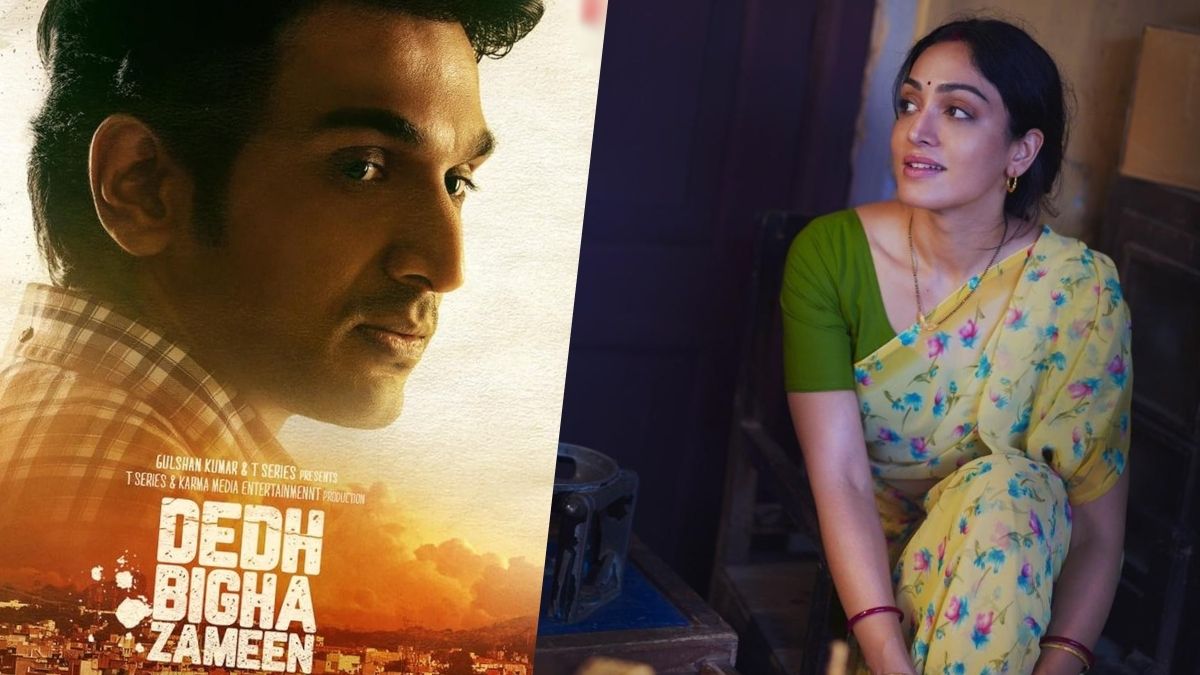
Dedh Bigha Zameen Movie Review a Cinematic Triumph of Rural Resilience and Social Commentary, 2024
Dedh Bigha Zameen
“Dedh Bigha Zameen” is a notable film directed by Pulkit, which premiered in 2023. The movie is an evocative exploration of the struggles faced by small farmers in contemporary India, resonating with themes of land ownership, social justice, and economic disparity. Here’s an in-depth review of the film.
list of the main cast of “Dedh Bigha Zameen”
- Pratik Gandhi as Ganga Ram – The protagonist, a small farmer fighting to save his land.
- Khushali Kumar as Parvati – Ganga Ram’s supportive wife.
- Ishaan Khatter as Raju – Ganga Ram and Parvati’s son.
- Tigmanshu Dhulia as Devendra Singh – The powerful industrialist attempting to acquire Ganga Ram’s land.
- Vineet Kumar Singh as Shyam – Ganga Ram’s loyal friend.
- Sohum Shah as Keshav – A local politician involved in the land dispute.
- Rajpal Yadav as Ramdhan – A village elder and mediator.
- Seema Biswas as Ganga Ram’s mother – Offering wisdom and emotional support.
- Raghubir Yadav as Bhola – A fellow farmer and Ganga Ram’s confidant.
- Shweta Tripathi as Sunita – An activist fighting for the rights of the farmers.
This ensemble cast brings depth and authenticity to the film, with each actor contributing significantly to the narrative’s emotional and social impact.
Plot Overview
The narrative revolves around the life of an impoverished farmer, Ganga Ram, who owns a small plot of land, roughly one and a half bighas, in a rural Indian village. The plot’s central conflict emerges when Ganga Ram’s land is threatened by a powerful industrialist, intent on acquiring it for a commercial project. The story unfolds as Ganga Ram fights against the odds to retain his ancestral land, highlighting his trials, resilience, and the broader socio-economic issues faced by marginalized communities.
Direction and Cinematography
Pulkit’s direction is nuanced, bringing a raw and authentic portrayal of rural India. His ability to capture the essence of the characters’ struggles without resorting to melodrama is commendable. The cinematography, handled by Anshuman Mahaley, complements the narrative beautifully, with sweeping shots of the rural landscape juxtaposed against the harsh realities of the villagers’ lives. The visual storytelling is both poignant and powerful, enhancing the film’s emotional impact.
Performances
The cast delivers strong performances, with particular acclaim for the lead actor who portrays Ganga Ram. His portrayal is both heart-wrenching and inspiring, capturing the character’s vulnerability and determination. The supporting cast, including the antagonistic industrialist and Ganga Ram’s family, add depth to the narrative, each delivering performances that feel genuine and relatable.
Themes and Social Commentary
“Dedh Bigha Zameen” delves deep into themes of land ownership, social justice, and economic exploitation. The film shines a light on the plight of small farmers who are often caught in the crossfire of development and tradition. It critiques the socio-economic structures that favor the wealthy and powerful, often at the expense of the poor. The film’s portrayal of these issues is both sensitive and thought-provoking, prompting viewers to reflect on the broader implications of industrialization and modernization.
Music and Soundtrack
The film’s music, composed by Anurag Saikia, is a blend of folk and contemporary sounds, enriching the narrative without overshadowing it. The soundtrack is hauntingly beautiful, with lyrics that reflect the characters’ inner turmoil and hopes. The background score subtly enhances the emotional tone of the film, making it an integral part of the storytelling.
Reception and Impact
“Dedh Bigha Zameen” has been well-received by critics and audiences alike for its compelling narrative and strong social message. It has sparked conversations about land rights and the ethical considerations of industrial development. The film’s realistic portrayal of its characters and their struggles has earned it accolades and is likely to leave a lasting impact on its viewers.
Conclusion
Pulkit’s “Dedh Bigha Zameen” is a poignant and powerful film that effectively combines storytelling with social commentary. It stands out for its authentic portrayal of rural life and the challenges faced by small farmers in India. With strong performances, compelling direction, and a moving soundtrack, the film is a significant contribution to contemporary Indian cinema and a must-watch for anyone interested in socially relevant narratives.
This film not only entertains but also educates and inspires, making it a valuable piece of cinematic art that highlights important socio-economic issues.




